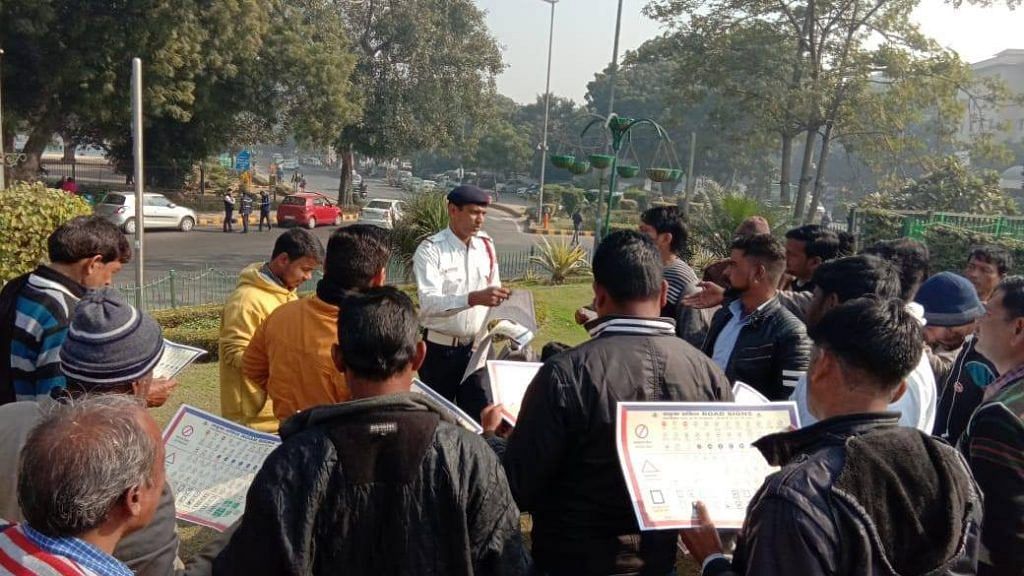Delhi Police says it was their aggressive awareness campaign that inspired Delhiites to follow rules on New Year’s Eve.
New Delhi: Delhi, a city notorious for its traffic violators, seems to be finally cleaning up its act. According to Delhi Police, this year saw a 71 per cent drop in the number of people booked for driving drunk during New Year’s Eve revelry, down from 1,752 the previous year to 509 this time.
These numbers depict the offenders apprehended on 31 December, until and after midnight.
Talking to ThePrint, police said the steep fall could be attributed to the hard-hitting multimedia campaign launched by them to warn drivers against traffic violations, particularly driving under the influence.
“Fewer drink-driving cases were witnessed due to the aggressive campaign carried out by Delhi Police,” special commissioner of police (traffic) Taj Hassan told ThePrint.
“Social media and other advertisement campaigns carried out by Delhi Traffic Police seem to have played a major role in bringing down the number of drink-driving cases,” said Delhi Police joint commissioner (traffic) Alok Verma.
Also read: Delhi Police serves 509 challans to new year eve revellers for drink-driving
#MeraGhaata
“FM radio played a major role in spreading awareness among Delhiites, especially taxi drivers,” Verma added, saying the “#MeraGhaata (my loss)” campaign carried out by Radio City had proved particularly effective.
Inspired by singer Gajendra Verma’s hit single “Tera Ghata (your loss)”, the Radio City campaign sought to discourage underage and drink-driving by emphasising that rash drivers and their families suffered the consequences of avoidable accidents too.
Additionally, there were a number of security measures in place ahead of New Year’s Eve, when thousands party through the night to ring in the coming year. Around 15,000 personnel were deployed in New Delhi alone, and police distributed road safety literature among members of the public.
Road safety literature distribution in the parking area of krishi bhawan pic.twitter.com/NddJHMmAKw
— Delhi Traffic Police (@dtptraffic) December 31, 2018
In New Delhi area, 50 checkpoints were set up, with a total of 300 traffic pickets installed around the city, including at hangout spots such as restaurants and bars. Also, 250 teams armed with alcometers, or breath analysers, stalked the city’s roads, with Verma telling ThePrint that senior police officers, including him, patrolled the streets as well.
“It is true that the checkpoints were in place last year as well and we had a zero-tolerance policy that time also, but our (awareness) campaign seems to be the major reason for the decline in the number of drink-driving cases,” he said.
Of the 509 people booked for drink-driving on New Year’s Eve, 362 were drivers of vehicles owned by someone else, while 147 were driving their own.
People who were drunk, Verma said, avoided driving and asked someone else to drive in their stead.
